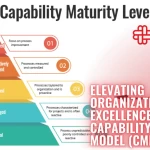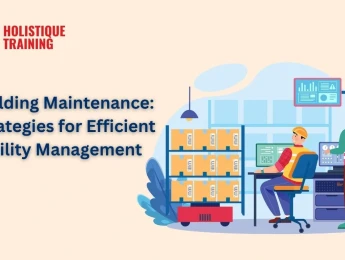Every business deals with contracts, whether with suppliers, service providers, or bidding for work. These contracts come with legal obligations that must be agreed upon before proceeding.
Understanding and planning to meet contractual obligations is crucial to avoiding penalties and maintaining good relationships with partners. Assess risks from both sides and agree on mitigation procedures to prevent further issues.
As a project owner, you must know non-compliance's legal and financial implications and foster open relationships with partners for mutually beneficial agreements. Contingency planning is essential, allowing grace periods for unforeseen circumstances.
If communication breaks down, your role is to restore the relationship using effective negotiation and communication. Remember, contracts are a two-way street, and managing expectations on both sides helps prevent legal issues.
Upon completion of this course, participants will be able to:
- Understand legal terminology regarding business contracts.
- Develop effective communication methods to create a mutually beneficial working relationship.
- Understand the risks involved in your contract.
- Develop mitigation and contingency plans to ensure your obligations are always met, even in unforeseen circumstances.
- Understand your future aims and predict potential issues.
- Review your current contracts and point out risks to your business.
- Create robust learning and reporting mechanisms to prove your compliance.
- Manage instances of non-compliance within the scope of your contract.
- Understand the different legal methods of resolution if a relationship breaks down.
- Prepare for a negotiation using informal methods of resolution.
- Write a positive proposal to win future contracts over other suppliers.
The course is designed for anyone responsible for writing bids or negotiating contracts within an organisation. It would be most beneficial for:
- Project Managers
- Business Owners
- Negotiators
- Account Managers
- Sales Directors
- Financial Directors
- Planning Managers
- Operations Managers
- Bid Writers
- Procurement Managers
- Contract Managers
- Commercial Managers
This course uses various adult learning techniques to aid full understanding and comprehension. Participants will review real-life case studies regarding successful contract fulfilment and watch interactive presentations to understand the risk areas and how contingency plans were operated.
In groups, participants will discuss potential problems with contractual obligations and learn about specific negotiation and relationship-building techniques. They will then participate in role-playing activities to practice their learned negotiation techniques, body language, and risk assessment discussions and develop a plan of action should agreements go off course and into a legal setting.
Day 5 of each course is reserved for a Q&A session, which may occur off-site. For 10-day courses, this also applies to day 10
Section 1: Negotiating Your Contract Effectively
- Writing a successful bid.
- Assessing your competitors and providing a more comprehensive package.
- Mapping your negotiation route.
- Enforcing your contract.
- Seeing the benefits from both sides.
- Understanding sign-off procedures.
Section 2: Your Contractual Obligations
- The six components of a binding contract.
- Accepting and deed signing.
- Understanding each step of the process.
- Outlining your project roadmap.
- Your financial obligations.
Section 3: Communication Techniques
- Effective Negotiation Techniques.
- The importance of body language.
- Remote relationship management.
- Written communication and accurate record keeping.
- The rules of negotiation culture.
Section 4: Managing Your Contract & Team
- Monitoring your progress.
- Effective reporting and monitoring mechanisms.
- Agreeing SLAs and targeting.
- Delegation to the strongest candidate.
- Scorecards and SLAs focusing on contractual obligations.
- Managing underperformance as a risk to the business.
- Handling change.
- Governance, change management, and documentation.
Section 5: Avoiding Bribery & Corruption
- The Bribery Act.
- Recognising bribery.
- The biggest issues for companies and corruption.
- The implications of becoming a victim of bribery.
- Enforcement and penalties.
- Accepting gifts or hospitality arrangements.
Section 6: Risk Identification & Management
- Assessing potential risks.
- Future-proofing your contract.
- Governing laws, mediation, and arbitration.
- Your jurisdiction and remit.
- Contingency planning and placement.
- Financial penalties and avoidance.
Upon successful completion of this training course, delegates will be awarded a Holistique Training Certificate of Completion. For those who attend and complete the online training course, a Holistique Training e-Certificate will be provided.
Holistique Training Certificates are accredited by the British Assessment Council (BAC) and The CPD Certification Service (CPD), and are certified under ISO 9001, ISO 21001, and ISO 29993 standards.
CPD credits for this course are granted by our Certificates and will be reflected on the Holistique Training Certificate of Completion. In accordance with the standards of The CPD Certification Service, one CPD credit is awarded per hour of course attendance. A maximum of 50 CPD credits can be claimed for any single course we currently offer.
- Course Code PO5-104
- Course Format Classroom, Online,
- Duration 5 days












